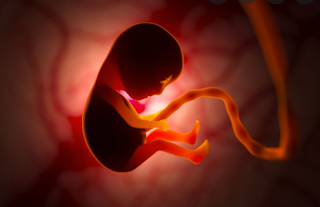COVID-19 VACCINES: Alaskan health care worker hospitalized with severe allergic reaction to the Pfizer vaccine.
Within minutes of being inoculated with the first dose (second dose should be taken 21 days after first jab) of the Pfizer-BioNTech vaccine, two health care workers at an Alaskan hospital became ill. The jabs were administered earlier this week, and while one of the health care workers was able to recover within an hour after being treated, the female health care worker experienced a more severe reaction and had to be kept for observation at the hospital for two nights.
Doctors on the case however noted that while her reaction to the vaccine was serious it was not life threatening.
When asked about her symptoms, the doctors said: She felt flushed within the first 10 minutes of receiving the vaccine Tuesday at Bartlett Regional Hospital in Juneau and later reported symptoms including shortness of breath and elevated heart rate.
The other Bartlett health care worker was treated for less severe symptoms after being injected Wednesday and was subsequently released, the doctors said.
The cases are the first allergic reactions to the vaccine to be widely reported on American soil. Health officials have however revealed that they are expecting the occasional allergic reaction as more persons receive the vaccine, and are prepared to treat anyone suffering from one.
The two workers were among staff being vaccinated at Bartlett Regional Hospital as part of the rollout of Pfizer's vaccine across the country this week. State health officials reported the more severe case early on Wednesday, and the hospital notified the public of the milder case later on in the day.
Alaska's Chief Medical Officer, Dr. Anne Zink said, "We expected that a side effect like this could occur after reports of anaphylaxis were made in England after people there received the Pfizer-BioNTech Covid-19 vaccine. All sites that are approved to provide vaccinations in Alaska must have medications on hand to deal with an allergic reaction and that was the case in Juneau."
Allergic Reactions and Hospitalizations
The more severe case was initially held in the vaccine monitoring area right after she received the shot on Tuesday and took a Benadryl, said Dr. Lindy Jones, an attending physician at Bartlett Memorial Hospital. When she reported shortness of breath, she was taken to the emergency room.
When Jones saw her in the hospital, he said she was experiencing shortness of breath and an elevated heart rate, and had developed a rash covering her face and torso.
"I was concerned about an anaphylactic reaction so gave her the standard treatment of a dose of intramuscular epinephrine and she responded immediately," Jones told a news briefing. She was also given antihistamines.
She still had an elevated heart rate and was breathing fast -- a sign of an allergic reaction -- so Jones gave her another dose of epinephrine, as well as steroids "which is another standard bread and butter treatment for adverse anaphylactic reactions," he said.
Interestingly, Dr. Jones revealed that the health care worker had no previous history of allergies to vaccines.
She was almost recovered after a night in the intensive care unit, Jones said. Later Wednesday, she still was recovering well but would remain another night in the hospital as a necessary caution, hospital personnel said.
"She was still enthusiastic that she got the vaccine and the benefits it would give her in the future," Jones said.
According the hospital's press release, the less severe case "experienced eye puffiness, light headedness, and scratchy throat 10 minutes after being injected with the vaccine" on Wednesday.
Whereas the first worker showed signs of a serious, anaphylactic reaction, the second worker's reaction "was not considered anaphylaxis," the hospital's news release continues.
The worker was however "...taken to the emergency department and administered epinephrine, Pepcid and Benadryl.
"He felt completely back to normal within an hour and was released"
Like the first worker, the second "does not want his experience to have a negative impact on his colleagues lining up for the vaccine," the statement reads.
Reported to the Centers for Disease Control
According to the hospital's statement, "Both incidents were reported to the CDC's Vaccine Adverse Event Reporting System (VAERS) database. Bartlett Regional Hospital and the State of Alaska Department of Health and Social Services are in close communications with the CDC, and the agency is providing guidance and support."
Dr. Paul Offit, a member of the US Food and Drug Administration's Vaccines and Related Biological Products Advisory Committee, noted on Wednesday that doctors will have to keep an eye out for allergic reactions to the new vaccine.
He also acknowledged the two previous cases of allergic reactions which occurred earlier this month in the United Kingdom.
"There were obviously several people in the United Kingdom who had had a severe allergic reaction to this vaccine and had a history of severe allergic reaction," he said.
He also cautioned the public by saying, "Currently, the CDC recommendation is that if you ever had a severe allergic reaction to an injectable medical product, you shouldn't get this vaccine."








Comments
Post a Comment